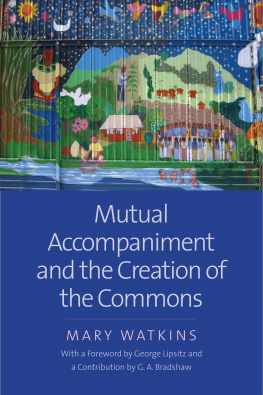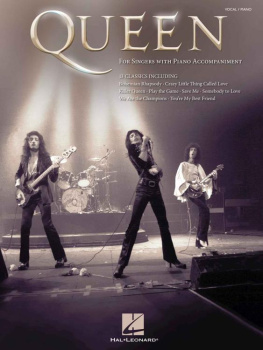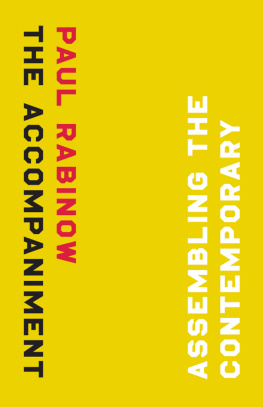Mary Watkins - Mutual accompaniment and the creation of the commons
Here you can read online Mary Watkins - Mutual accompaniment and the creation of the commons full text of the book (entire story) in english for free. Download pdf and epub, get meaning, cover and reviews about this ebook. year: 2019, publisher: Yale University Press, genre: Politics. Description of the work, (preface) as well as reviews are available. Best literature library LitArk.com created for fans of good reading and offers a wide selection of genres:
Romance novel
Science fiction
Adventure
Detective
Science
History
Home and family
Prose
Art
Politics
Computer
Non-fiction
Religion
Business
Children
Humor
Choose a favorite category and find really read worthwhile books. Enjoy immersion in the world of imagination, feel the emotions of the characters or learn something new for yourself, make an fascinating discovery.
- Book:Mutual accompaniment and the creation of the commons
- Author:
- Publisher:Yale University Press
- Genre:
- Year:2019
- Rating:5 / 5
- Favourites:Add to favourites
- Your mark:
- 100
- 1
- 2
- 3
- 4
- 5
Mutual accompaniment and the creation of the commons: summary, description and annotation
We offer to read an annotation, description, summary or preface (depends on what the author of the book "Mutual accompaniment and the creation of the commons" wrote himself). If you haven't found the necessary information about the book — write in the comments, we will try to find it.
Mutual accompaniment and the creation of the commons — read online for free the complete book (whole text) full work
Below is the text of the book, divided by pages. System saving the place of the last page read, allows you to conveniently read the book "Mutual accompaniment and the creation of the commons" online for free, without having to search again every time where you left off. Put a bookmark, and you can go to the page where you finished reading at any time.
Font size:
Interval:
Bookmark:
More praise for Mutual Accompaniment and
the Creation of the Commons
In this wide-ranging, thoughtful, insightful, and infinitely generative book, Watkins crystallizes, distills, analyzes, and augments the long history of the practice that has become known as accompaniment. She illuminates diverse and varied places of origin and implementation of different forms of accompaniment connected to struggles for dignity, decency, and democracy.... It is a book for our time that is right on time.From the Foreword by George Lipsitz, author of How Racism Takes Place
A groundbreaking book that reveals the heart of an activist. Mary Watkins wonderful and accessible stories of accompaniment have the potential to transform the very structures of human service provision.Lynne Layton, Harvard Medical School
In this book, accompaniment is presented as a preferred approach to psychotherapy; as recognition of the web of life; and as an alternative to capitalism. An absorbing read.Staughton Lynd, author of Accompanying: Pathways to Social Change and co-editor with Alice Lynd of Nonviolence in America: A Documentary History
An original and significant intervention that will have far-ranging appeal to students of psychology, anthropology, and cultural studies. This book holds the potential of becoming a classic.Deanne Bell, University of East London
Watkins speaks about the need for providers to go beyond their privileged comfort levels and address the real needs of the people we aim to serve and support.Chakira M. Haddock Lazala, Ph.D.
Quite creative and amazingly integrative.Darcia Narvaez, University of Notre Dame, author of Neurobiology and the Development of Human Morality: Evolution, Culture, and Wisdom
This original and impressively thorough book has the potential to establish psychosocial accompaniment as a primary mode of practice in the helping professions. It is the perfect antidote to widespread indifference to human suffering.Tod Sloan, Lewis and Clark College, author of Damaged Life: The Crisis of the Modern Psyche
A timely book, full of delightful anecdotes and practical guidance. Mary Watkins has crafted an extraordinary story of a nearly forgotten practice.Peter Westoby, Queensland University of Technology, Australia, co-author of Participatory Development Practice: Using Traditional and Contemporary Frameworks
Mutual Accompaniment and the
Creation of the Commons

Published with assistance from the foundation established in memory of James Wesley Cooper of the Class of 1865, Yale College.
Copyright 2019 by Mary Watkins.
, Nonhuman Animal Accompaniment, copyright 2019 by G. A. Bradshaw.
All rights reserved.
This book may not be reproduced, in whole or in part, including illustrations, in any form (beyond that copying permitted by Sections 107 and 108 of the U.S. Copyright Law and except by reviewers for the public press), without written permission from the publishers.
Yale University Press books may be purchased in quantity for educational, business, or promotional use. For information, please e-mail (U.K. office).
Set in Bulmer type by IDS Infotech Ltd., Chandigarh, India.
Printed in the United States of America.
Library of Congress Control Number: 2018960645
ISBN 978-0-300-23614-9 (hardcover : alk. paper)
A catalogue record for this book is available from the British Library.
This paper meets the requirements of ANSI/NISO Z39.48-1992 (Permanence of Paper).
10 9 8 7 6 5 4 3 2 1
To all those who have deepened into lives graced by mutual accompaniment,
who have rejected disregarding their neighbors, human and other-than-human,
who have nurtured their courage and perseverance, shared the risks of resistance,
and created in the face of difficulty: thank you.
Your loving solidarity prefigures the commons-to-come,
providing us bread for our journeys.
If you have come here to help me, you are wasting your time.
But if you have come because your liberation is bound up with mine,
then let us work together.
Aboriginal Activist Group, Queensland, Australia, 1970s
Contents
FOREWORD
Accompaniment as a Way of Life
George Lipsitz
IN ONE OF HER TYPICALLY scintillating, self-reflexive essays, author, activist, and filmmaker Toni Cade Bambara argued that in her attempts to change society, she discovered the need to transform herself. It was not enough for Bambara simply to envision more decent and democratic social relations. It was necessary instead to learn how to become a person capable of experiencing those relations in the present by seceding from the dominant norms and values of the self-centered, materialistic, and aggressively competitive society in which she had been raised. Bambara described her quest for self-transformation as a collective effort based on augmented connections with others, as a persistent struggle that necessitated rising above my training, thinking better than Ive been taught, developing a listening habit, making the self available to intelligence, engaging in demystification, and seeking out teachers at every turn. Bambara emphasized that the teachers she needed were not necessarily credentialed experts offering instruction in classrooms. While expressing due respect and appreciation for people with advanced knowledge, she delineated the many different kinds of lessons that she had learned from many different kinds of people, especially those who had developed an augmented capacity for love in a world that so often makes people unloving and even seemingly unlovable.
Bambara did not use the term accompaniment to describe her practice, but her art and activism revolved resolutely around the ideas and ideals that Mary Watkins associates with accompaniment in this book. Bambaras employment history before she became known as a writer placed Bambara consistently presented her quests for personal and societal transformation as an innately collective and social process that required creating horizontal relations based on mutual respect and recognition. Born Miltona Cade, she adopted the name Bambara because she admired the ritual Chiwara masks of the Bambara people of Mali, but also to augment the identity she inherited from familial bloodlines by fusing it with the identity she shared with entire groups like the Bambara people due to their linked fate of dispossession, displacement, and enslavement, but also of African retention and New World invention in slavery and in freedom.
In Mutual Accompaniment and the Creation of the Commons, Mary Watkins reveals the pressing urgency in the present for creating the forms of personal and social transformation that Bambara championed four decades ago. In this wide-ranging, thoughtful, insightful, and infinitely generative book, Watkins crystallizes, distills, analyzes, and augments the long history of the practice that has become known as accompaniment. She illuminates diverse and varied places of origin and implementation of different forms of accompaniment connected to struggles for dignity, decency, and democracy. She explains how at the most intimate and personal levels of existence, experience, and understanding, accompaniment emerges from looking at rather than looking away, from listening rather than speaking prematurely, and from promoting cooperation rather than competition.
The pressing need for accompaniment today is all too evident. In a society that elevates the love of gain over the well-being of both the social and the natural commons, people come to feel alone and disconnected. In Doris Sommers deft formulation, they become inured to suffering and afraid of love. Yet this new marginality and vulnerability among people who previously presumed themselves to be secure in the center means that they now have a great deal to learn from people they may despise, from subjugated communities whose insurgent knowledges emanate from and depend on accompaniment. In this book, Watkins introduces us to teachers at every turn, people in places where new forms of horizontal relations across difference are being envisioned and enacted.
Next pageFont size:
Interval:
Bookmark:
Similar books «Mutual accompaniment and the creation of the commons»
Look at similar books to Mutual accompaniment and the creation of the commons. We have selected literature similar in name and meaning in the hope of providing readers with more options to find new, interesting, not yet read works.
Discussion, reviews of the book Mutual accompaniment and the creation of the commons and just readers' own opinions. Leave your comments, write what you think about the work, its meaning or the main characters. Specify what exactly you liked and what you didn't like, and why you think so.









